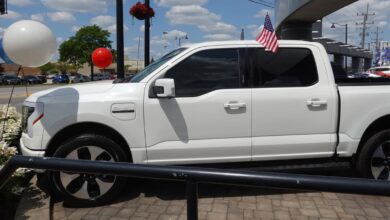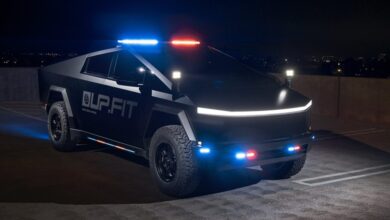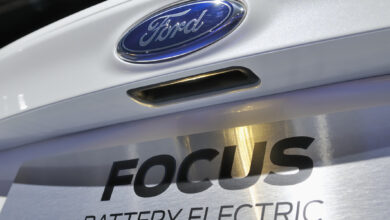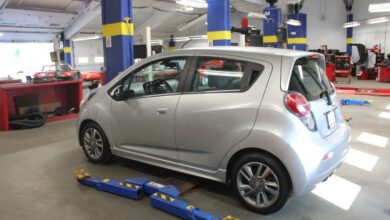How interest in electric vehicles has stalled over the last 3 years, in one chart

By Victor Reklaitis
Younger Americans are particularly aware of Chinese EV brands, survey finds
The promised American switch to electric vehicles from gas-engine cars is hitting speed bumps, and a new survey offers fresh indications of that slowdown.
As shown in the middle chart above, the percentage of Americans who say they’re very or moderately likely to buy a battery electric vehicle, or BEV, has stagnated. It came in at 35% in the survey conducted by consulting firm AlixPartners – the same level as in 2021.
In the U.S. and European markets, BEVs are “mostly satisfying early adopters,” while China “now operates like a mature BEV market, with consumers seeing BEVs as a natural choice,” said Mark Wakefield, AlixPartners’s global co-leader for its automotive and industrial practice, in a statement last week as the survey’s results were released.
American and European buyers are turning to plug-in hybrid EVs, or PHEVs – seeing them as a “completely legitimate substitute for meeting near-term needs and addressing charging and range concerns,” said Arun Kuman, global co-leader for advanced mobility at AlixPartners.
Related: Ford’s stock rises as EV losses are held in check and hybrid sales surge
The significant concerns around charging and driving range are shown in the additional chart below.
Electric vehicles have become increasingly politicized, with the presumptive 2024 Republican presidential nominee, Donald Trump, often criticizing President Joe Biden’s policies that seek to accelerate the shift away from internal combustion engines. On the other hand, Republicans and Democrats do see eye to eye on inexpensive Chinese EVs, as there are bipartisan calls to keep such cars out of the U.S.
See: One thing Biden and Trump agree on: Keeping this $10,000 Chinese EV out of the U.S.
The AlixPartners survey found Americans have some awareness of Chinese EV brands. Among those who are very likely or moderately likely to buy BEVs, 21% were aware of BYD (HK:1211) (CN:002594), 20% knew of Leapmotor (HK:9863) and 14% knew of Nio (NIO) and Hozon Auto. In addition, 73% of those consumers said they would consider buying or leasing a Chinese EV if it were priced 20% lower than a similar non-Chinese car.
Younger Americans were especially aware of Chinese EV brands, as shown in the chart below.
The AlixPartners survey was conducted from March 28 to April 10, reaching 9,000 respondents across eight countries.
Rental-car chain Hertz (HTZ) has been among the U.S. companies hammered by weaker-than-expected demand for electric vehicles. Hertz’s stock plunged 26% last week as the company reported a wider-than-anticipated quarterly loss and expanded its plan to sell off its EV fleet.
Meanwhile, U.S. EV pioneer Tesla (TSLA) reported sharp drops in its quarterly profit and revenue last week, though investors cheered its promise of an affordable EV by early next year.
Electric vehicles are likely to make up 8% of new-car sales in the U.S. this year, up just a little from their share of 6.9% in 2023, according an Edmunds estimate.
Now read: Smart ways to shop for used EVs, which now cost half as much as they did in 2022
-Victor Reklaitis
This content was created by MarketWatch, which is operated by Dow Jones & Co. MarketWatch is published independently from Dow Jones Newswires and The Wall Street Journal.
(END) Dow Jones Newswires
05-04-24 1449ET
Copyright (c) 2024 Dow Jones & Company, Inc.



